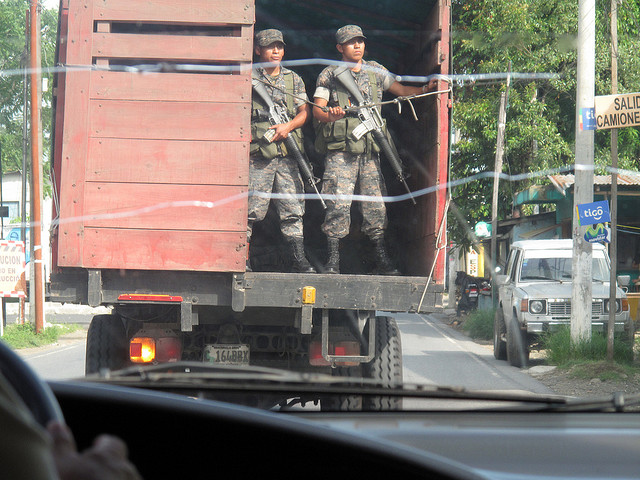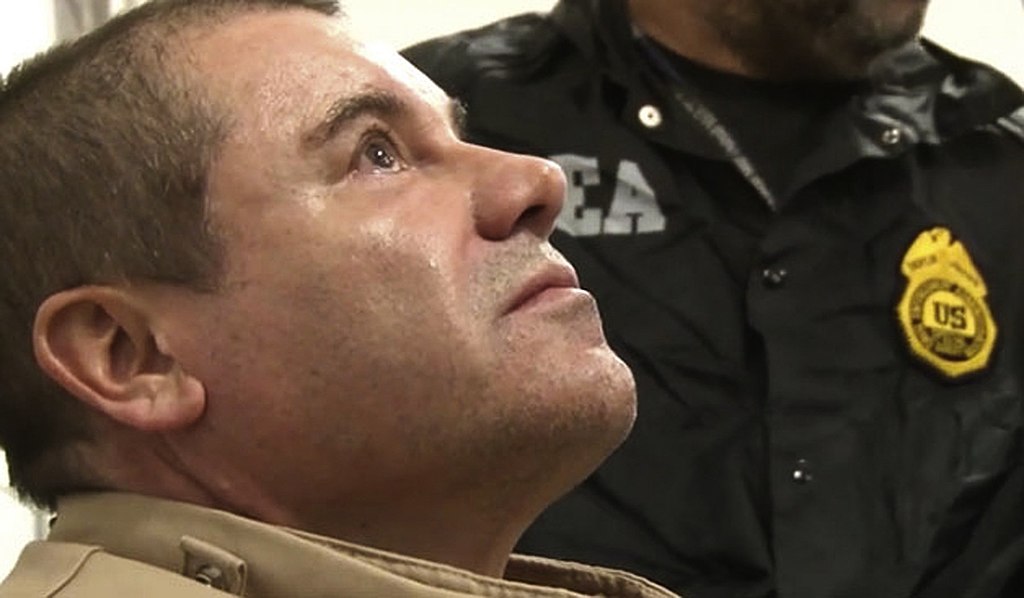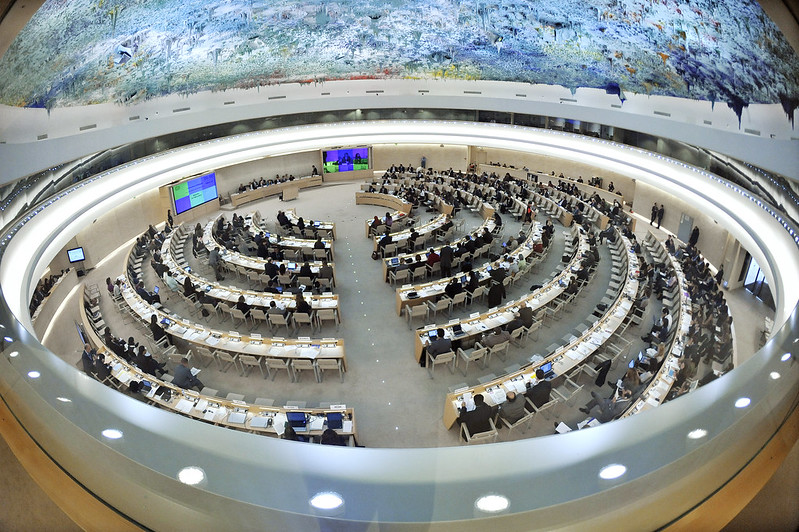
Guatemala, Latin America: Week in Review
Guatemala Declares State Of Siege After Riot
May 3, 2012 By Staff
Top Story — The Guatemalan government sent troops to the province of Huehuetenango after declaring a state of siege when 200 people took over an army outpost on the border with Mexico. The unrest reportedly began when a man was killed in the town of Barillas, prompting local residents to take over the nearby outpost to protest the murder. The rioting residents said the man was killed in retaliation for his opposition to a hydroelectric plant scheduled for construction in their town. The townspeople reportedly arrived at the outpost fully armed with machetes and guns, injuring soldiers, and then returned to Barillas and set buildings ablaze. A Defense Ministry spokesman said that 100 soldiers and 160 police had been sent to the province to put down the riot, and that eight peole had already been detained. Under a state of siege, security forces can make arrests without warrants. Guatemalan President Otto Molina defended that decision, alleging that the rioters were affiliated with drug traffickers.
Read more from the Washington Post.
Headlines from the Western Hemisphere
North America
- Mexican authorities in the state of Sinaloa said that 10 gunmen and two soldiers were killed after a shootout on Wednesday morning.
- The Northwest Immigrant Rights Project, a Seattle nonprofit, has filed a lawsuit against the U.S. Department of Justice and the U.S. Department of Homeland Security after local police departments allegedly used border patrol agents to act as interpreters for immigrants.
- Florida Governor Rick Scott angered Cuban Americans by signing a bill to punish companies who trade with Cuba and Syria but later issuing a statement implying the bill was unenforceable.
- Mexican tourism officials said Spring Break travel from the U.S. to Mexico rose 7.2 percent despite a travel warning by the Texas Department of Public Safety telling college students to stay away.
Caribbean
- The Jamaican Supreme Court on Wednesday blocked a challenge by a group of policemen who said that the country’s Independent Commission of Investigations had no right to compel them to give information in probe of abuses by security forces.
- Economist Paul Altidor officially became Haiti’s new ambassador to the United States in a credentialing ceremony at the Oval Office.
- Researchers from Brandeis University said that Puerto Rico spends $40 million a year to treat and research deadly dengue fever.
Central America
- The mayor of Tegucigalpa has instituted a free funeral service known as “Funeraria del Pueblo” for people whose families are too poor to afford to bury them.
- U.S. Homeland Security Secretary Janet Napolitano said that there was no proof that a group of Secret Service employees in El Salvador had been involved with prostitutes.
Andes
- Parliament members from four different countries are reportedly forming a coalition to block Venezuela’s bid to gain a seat on the UN Human Rights Council on the grounds of human rights violations in Venezuela.
- The Colombian government and international journalist rights groups continued to demand the release of French journalist Romeo Langlois, whom the FARC claimed they were holding as a “prisoner of war”.
- Nine Colombian prostitues reportedly involved in a Secret Service prostitution scandal have claimed that they were paid for sex by U.S. Secret Service agents ahead of the Summit of the Americas.
Southern Cone
- The Chilean government announced that it would be increasing unemployment benefits by allowing those who lose their jobs to withdraw 70 rather than 50 percent of their salary.
- Argentine soccer star Lionel Messi broke a 39 year-old record for goals in a European Club Season on Wednesday night in a game against Malaga.
Image: ax2groin @ Flickr.





